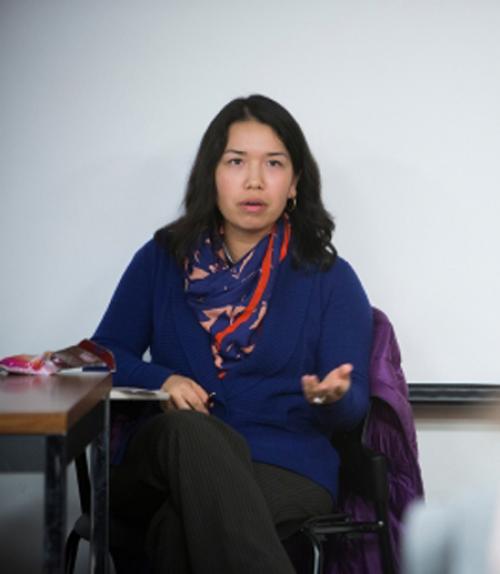Jessica Chen Weiss, associate professor of government, offered insights into China’s digital authoritarianism – and its surveillance, influence and political control – in testimony May 16 before the U.S. House of Representatives’ Permanent Select Committee on Intelligence.
“The best way to face China is to make our democracy and that of others work better,” Weiss said. “That would set an example for others to follow and allow the United States to compete with the true sources of China’s international power: its economic and technological might.”
Her testimony focused on two issues. First, she said, counter to many U.S. leaders’ assumptions, China is not making a strategic effort to export its autocratic form of government. Second, her research suggests the Chinese public is quite hawkish, which is putting pressure on their leaders to act tough in international disputes.
Many America leaders, she said, fear that China threatens not just specific U.S. interests but the very survival of liberal democracy and the U.S.-led international order. “In my view,” Weiss said, “these fears get the challenge from Beijing wrong.”
Even though Beijing has made it easier for autocracy to coexist with democracy in the international community, it is not bent on spreading autocracy around the globe, Weiss said. Rather, the Chinese leadership wants to secure its domestic and international position and make the world safer for the Chinese Communist Party.
“A new policy of across-the-board containment or decoupling would be a strategic error,” Weiss said, “and could even backfire by making China into what many in Washington already fear it is: an implacable enemy.”
China’s heavy investments in surveillance technologies have made it cheaper and easier for other authoritarian regimes to monitor their citizens. “Yet it is important to note that the diffusion of digital authoritarianism is not the same thing as an intentional effort to remake other governments in China’s image,” she said.
Technology can empower any government, she said, but strong democratic institutions – including legislation to restrict surveillance and protect citizens’ privacy – can also constrain the power of technology.
The “dystopian police state” that China has built in its northwestern region of Xinjiang and the internment of 1 million Uighurs – an ethnic minority – is far more egregious and pressing for the United States and other governments to address than the diffuse danger of Chinese technology exports, she said.
On the foreign policy front, Weiss’ research suggests that the Chinese public is quite hawkish. Most Chinese citizens in her surveys approved of China sending troops to reclaim disputed islands in the East and the South China seas, and they viewed the U.S. military presence in East Asia as threatening.
That has implications for the ongoing trade war with the U.S., Weiss said.
“The Chinese government is unlikely to make concessions to reach a deal without being able to save face at home,” she said.
If Beijing was really bent on destroying democracy and spreading authoritarianism, Weiss said, containment might be the right move. But it would be dangerous for the United States to try to counter Chinese influence everywhere it appears across the globe, she said.
That type of strategy would risk damaging U.S. growth and innovation, harm the freedom of speech and society here at home, and risk becoming a self-fulfilling prophecy, she said.
“Where Chinese actions infringe on fundamental democratic principles such as the rule of law, fair elections, free speech and freedom of the press,” she said, “the United States should confront those responsible and join other like-minded governments in protecting shared values.”
This story also appeared in the Cornell Chronicle.




